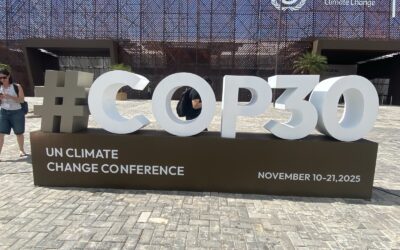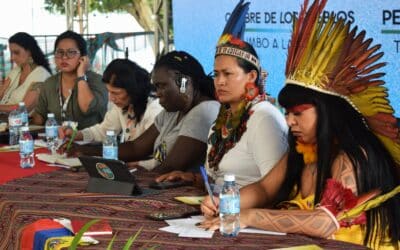According to Chad Holliday, Chair of the Bank of America and Co-Chair of the Sustainable Energy for All Initiative (SEFA) is “the greatest public-private partnership of all” – approaching $50 billion in commitments, with 50 countries having signed up to its initial assessment.
Despite its the title of the initiative, a representative of the UN General-Secretariat spelled out that “implicit in SEFA is that all options are open” – including all fossil fuel options. Low carbon emissions, she claimed, were associated with poverty, hence to allow countries to escape poverty would require that they burnt more fossil fuels. Mobilising private sector investment into energy expansion, without barriers or restrictions, was the key theme running through SEFA representatives speeches. While rich countries might ‘offset’ some of the additional fossil fuels burnt in developing countries, reducing their overall energy use was not on the agenda.
Energy generation, SEFA spokespersons claimed, had to be scaled up to plug the ‘energy gap’. This is the gap between the amount of energy used globally today and the IEA’s demand forecast for 2030 – never mind that the IEA’s previous fantastically high energy growth forecasts were proven wrong. As a Microsoft spokesperson pointed out: “The Sustainable Energy Initiative for All is not just about the 1.6 billion people without modern energy access.” Indeed it is not. Given SEFA’s reliance on markets, it may well turn out to be least of all about those people who cannot afford to purchase electricity or modern cookstoves. As a minister from Sierra Leone explained, his country was facing the challenge of only 9% of the rural population having access to electricity, though most of the ‘demand growth’ was coming from mining and agribusiness companies. Those of course can pay.
Country representations illustrated what SEFA’s vision might mean in practice: A Norwegian government spokesperson praised Norway’s “Oil for Development” scheme which aimed to transform oil and gas into a blessing for developing countries. Africa had great gas resources and Norway was generously offering help with exploiting those. Norway sees an equally important role for big hydro dams: “Big hydro is a renewable energy which can be handled well…and is a great resource Africa has. “ The private sector should invest more in it and once more, Norway is ready to help. With Norway being a key funder of SEFA commitments so far, their choice of big hydro as the key type of renewable energy will undoubtedly result in more big dams being financed under the SEFA umbrella – there is evidence that this is already happening.
Hydro featured prominently in several other country presentations, too: A Ugandan government speaker emphasised big as well as small and micro hydro. A speaker from Tajikistan spoke of his government’s vision to produce enough hydropower to bring electricity to the rural populations – only 9% of whom have access to it – and to export it to neighbouring countries. A Zambian government representative spoke about hydro power – which provides 99% of the countries electricity at present, and also about great interest in biofuels for which they wanted to see more support. A Sierra Leonan government speaker called for more investment into hydro power and biofuels, too, praising in particular the Swiss ethanol investment by Addax, which is to feed a small amount of electricity from cogeneration into the country-s grid – while exporting large quantities of ethanol to Europe. According to research by the Sierra Leone on the Right for Food, Addax’s ethanol plantations led to farmers from 12 villages losing fertile land, with many facing hunger as a result[1]. A speaker from Bloomberg New Energy Finance meantime described nuclear power as “absolutely fantastic”.
The US government expressed their strong support for SEFA and listed a range of initiatives to increase energy investment in developing countries. They, too – unsurprisingly – described the private sector as their main partners in this endeavour.
Meantime, speakers from the World Health Organisation and a small number of NGOs welcomed the initiative and expressed hope that it would deliver much-needed energy to meet people’s and particularly women’s basic need – such as safe cooking and affordable lightning. And indeed, if SEFA succeeds in mobilising funds on the scale which its high-level panel envisions, some investments and projects resulting from it could indeed benefit some communities that lack access to basic safe and affordable energy today. At the same time, however, the massive overall increase in energy generation foreseen by SEFA, if it was achieved largely through big hydro dams, biofuels and fossil fuels could, in coming decades, lead to millions more people being displaced from their land, to widespread loss of food sovereignty and to environmental devastation as well as even faster and more catastrophic climate change. A few positive spin-offs must not be allowed to legitimate SEFA’s highly destructive “energy growth at any cost” vision.
Prior to the SEFA Day at Rio, well over 100 civil society organisations had warned against the corporate control of the initiative, with many calling on governments to reject SEFA[2]. SEFA representatives have now confirmed that the initiative supports ‘energy growth’ at any cost, regardless of its social, environmental and climate impacts. This should be a wake-up call to all NGOs and other civil society groups to look past SEFA’s poster child ‘projects for the poor’ and to oppose SEFA’s grand scheme at all levels.




